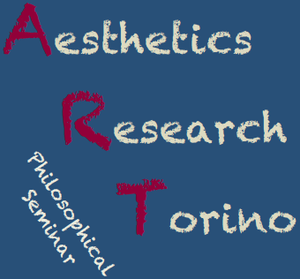Conferenza ART - Vittorio Gallese (Parma, New York, Berlino)
Da: Mercoledì 10 giugno 2020 ore 17:00
Fino a: Mercoledì 10 giugno 2020 ore 19:00

ART (Aesthetics Research Torino) Philosophical Seminar
Prof. Vittorio Gallese
Dept. of Medicine & Surgery – Unit of Neuroscience. University of Parma, Italy
Dept. of Art History and Archeology, Columbia University, New York, USA
Einstein Fellow, Berlin School of Mind and Brain, Humboldt Universität
June, 10th at 5 p.m.
Location: Webex
Link: https://unito.webex.com/unito/j.php?MTID=m34e479b256862feb48ce384fee0312e9
PW: Ma2gCmBi8g4
Habits, social practice and symbol-making.
A just-so story.
If cognitive neuroscience is meant to investigate what makes us human, cultural artifacts and artistic expressions should be at the top of the list of its explananda. Cognitive neuroscience, in tight cooperation and dialogue with the humanities, can shed new light on several theoretical issues related to aesthetics, traditionally dealt with exclusively within the camp of the humanities. The notion of ‘habit’ is introduced, it is connected to its potential underlying neural mechanisms, and to the production and reception of human cultural artifacts. Capitalizing upon Pragmatism, Pierre Bourdieu and practice theory, the relationship between body, habit, practice, rituals and its bearing on the creation of symbolic objects and cultural artifacts is analyzed from a neuro-pragmatist approach, which emphasizes the procedural and implicit forms of human cognition. The suggested gradual transition from tool-making to symbol-making, grants the following: 1) It shows that utilitarian and symbolic behavior are both chapters of the same cognitive technology trajectory; 2) It doesn’t require one to assume that symbol-making is the late externalization of a previously existing inner symbolic thought, because symbolic thought and symbol-making are the co-constructive outcome of the development of shared performative practices and habits; 3) It is fully compatible with the neurobiological characterization of human relational potentialities as instantiated by embodied simulation. It is proposed that through the repetition, combination and memorization of particular shared behaviors and actions, and their mimetic ritualization, the social group infuses new cultural meanings into reused bodily performances.
Vittorio Gallese, MD and trained neurologist, is Professor of Psychobiology and Cognitive Neuroscience at the Dept. of Medicine & Surgery of the University of Parma, Italy, Adjunct Senior Research Scholar, Dept. of Art History and Archeology, Columbia University, New York, USA and Einstein Fellow at the Berlin School of Mind & Brain of Humboldt University. Cognitive neuroscientist, his research focuses on the relation between the sensory-motor system and cognition by investigating the neurobiological and bodily grounding of intersubjectivity, psychopathology, language and aesthetics. He is the author of more than 200 scientific publications and three books.
ART (Aesthetics Research Torino) is a periodic philosophical seminar organized by the Department of Philosophy and Educational Sciences of the University of Turin and the PhD Program FINO. It is coordinated by Prof. Alessandro Bertinetto.
ART addresses different topics of the contemporary debate in Aesthetics: philosophy of beauty, philosophy of the arts, theory of sensory experience, philosophy of image and imagination, and history of aesthetics.
ART is supported by:
Centro Interuniversitario di Ricerca sulla Morfologia Francesco Moiso (CIM)
Centro di Ricerca Interdipartimentale di Logica, Linguaggio e Cognizione (LLC)
Centro Studi Arti della Modernità
Centro Studi Filosofico-religiosi "Luigi Pareyson"
Laboratorio di Ontologia (Labont)
ART is sponsored by:
Italian Society for Aesthetics (SIE)
European Society for Aesthetics (ESA)




